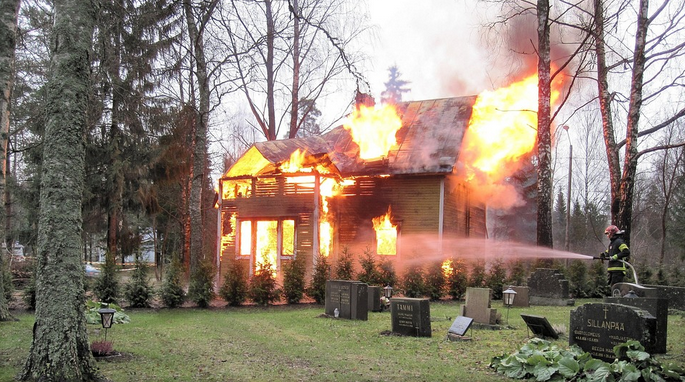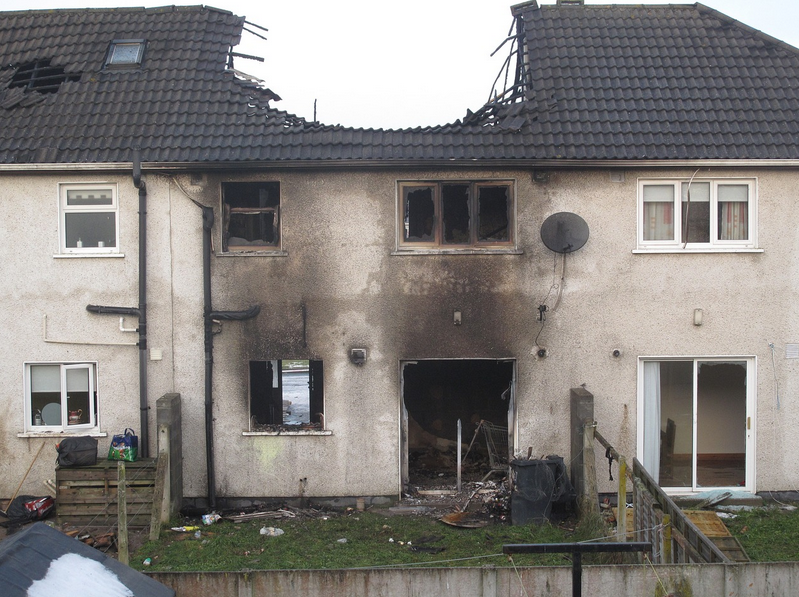
Fire damage can turn a dream home into a nightmare in an instant. Whether it’s caused by an electrical issue, a careless mistake, or even natural disasters like wildfires, the aftermath of a fire can be devastating for homeowners and prospective buyers alike. When you’re navigating real estate contracts in the wake of such damage, understanding your rights and responsibilities is crucial. Also, selling a home with fire damage adds an extra layer of complexity to the process. Let’s break down everything you need to grasp about fire damage and how it influences real estate contracts so you can make informed decisions moving forward.
What Constitutes Fire Damage in a Property?
Fire damage goes beyond charred walls. It also includes smoke and soot residue that can permeate throughout a home. Even areas not directly affected by flames may suffer from lingering odor or discoloration caused by heat. Structural integrity is another key factor. Beams, roofs, and foundations can become compromised due to extreme temperatures, making them unsafe for habitation. Electrical systems are often at risk, too. Melting wires or damaged circuits pose a significant hazard long after the fire has been extinguished.
The Impact of Fire Damage on Real Estate Contracts

Fire damage can significantly alter the dynamics of real estate contracts. When a property suffers fire damage, its value often decreases. This depreciation forces buyers and sellers to reconsider their agreements. Sellers must disclose any prior incidents of fire damage. Failing to do so can lead to legal complications down the road. Transparency is crucial in maintaining trust between both parties. For buyers, understanding the extent of the damage is essential. A thorough inspection helps unveil hidden issues that may arise post-purchase. This knowledge empowers buyers during negotiations.
Legal Rights and Obligations for Buyers and Sellers
When dealing with fire-damaged properties, understanding legal rights is crucial. Buyers and sellers must be aware of their responsibilities under the law. Sellers are often required to disclose any known fire damage. Failing to do so can lead to legal repercussions. Transparency builds trust and prevents disputes down the line. Buyers, on the other hand, have the right to conduct inspections before finalizing a purchase. This protects them from unexpected issues that could arise later.
How to Protect Yourself From Fire Damage in a Real Estate Transaction
When navigating a real estate transaction, safeguarding yourself against fire damage is essential. Start by obtaining detailed disclosures from the seller regarding any past incidents of fire or smoke damage. A thorough inspection can reveal hidden issues. Hire a qualified inspector who specializes in fire-related damages to assess the property comprehensively. This step helps you uncover any lingering problems that may not be visible at first glance. Consider including specific clauses in your contract that address potential fire damage. Clearly outline responsibilities regarding repairs and insurance coverage to prevent future disputes.

Tips for Negotiating Fair Terms in a Contract Following Fire Damage
When negotiating terms in a real estate contract affected by fire damage, clarity is key. Start by collecting all relevant information about the extent of the damage and estimated repair costs. This will provide you with a solid foundation for your discussions. Consider obtaining an independent assessment to support your position. An unbiased third-party opinion can lend credibility to your claims during negotiations.
Be …




 It is always a smart idea to consult with at least a couple of existing landlords of the PMC. Although they might not inform you everything regarding the company, you might be able to understand the efficiency of the company to satisfy the requirements of the property owners. The civil register of the original Superior Court will be one more reliable source of information. Typically, you will be able to ascertain the number of times the company was sued by either tenant or landlords or even third party service providers by simply conducting a name search.
It is always a smart idea to consult with at least a couple of existing landlords of the PMC. Although they might not inform you everything regarding the company, you might be able to understand the efficiency of the company to satisfy the requirements of the property owners. The civil register of the original Superior Court will be one more reliable source of information. Typically, you will be able to ascertain the number of times the company was sued by either tenant or landlords or even third party service providers by simply conducting a name search. While screening potential management companies, you might wish to schedule a personal meeting with any agent. You can ask your queries regarding the terms and conditions of the contract after meeting the property management professional personally. During the meeting, you will also understand whether the manager will be ideal for your property.
While screening potential management companies, you might wish to schedule a personal meeting with any agent. You can ask your queries regarding the terms and conditions of the contract after meeting the property management professional personally. During the meeting, you will also understand whether the manager will be ideal for your property.

